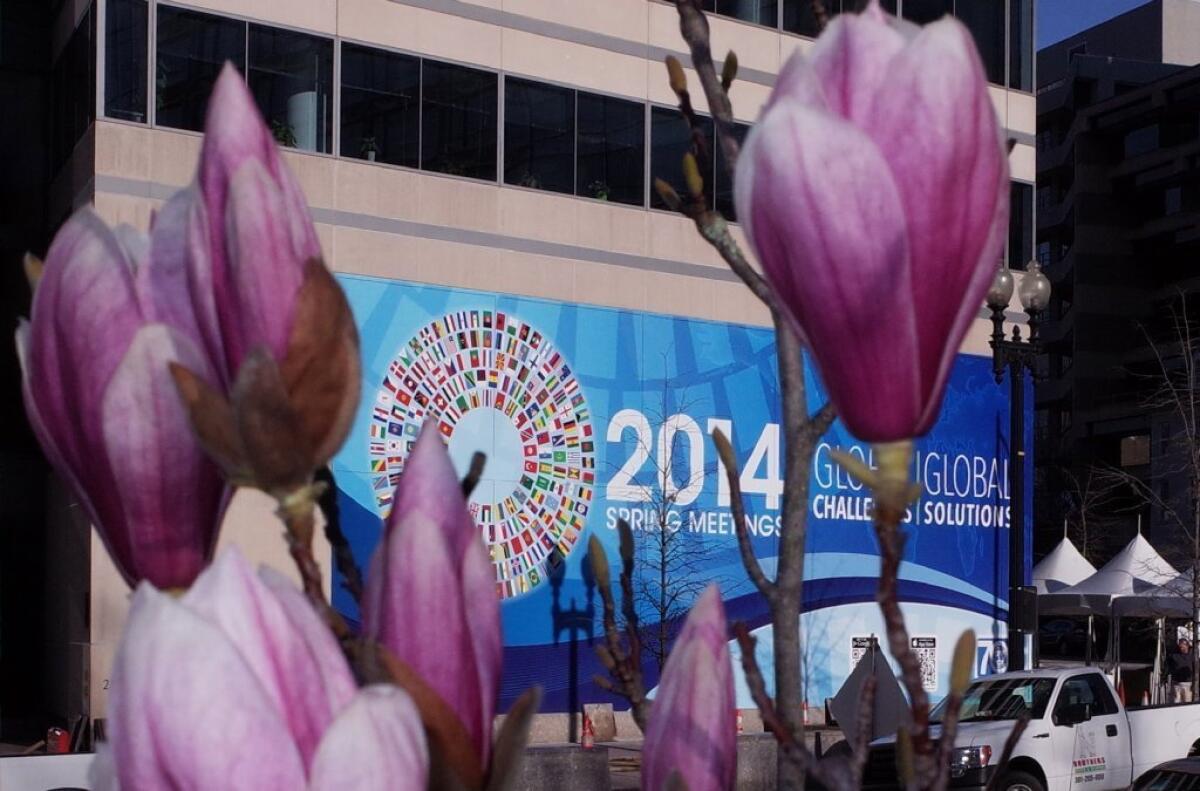IMF says global economic recovery is strengthening

WASHINGTON -- Global economic growth should gain momentum this year, with the U.S. leading the way among developed countries and some long-depressed southern Eurozone economies finally turning the corner, says the International Monetary Fund.
The IMF, in a new forecast ahead of its annual spring meeting later this week, projected Tuesday that world economic output would rise 3.6% this year and 3.9% in 2015, from 3% in 2013. The projections are little changed from the fund’s January outlook and mark the strongest increase since 2011.
“The various brakes that hampered growth are being slowly loosened,” the IMF’s chief economist, Olivier Blanchard, said in a statement. They include an easing of government belt-tightening; reduced concerns about managing debts; and a strengthening of banks, he said.
Still, first-quarter growth has been slower than expected in the U.S., and heightened geopolitical tensions, particularly the turmoil over Russia’s annexation of Crimea, are contributing to reduced growth prospects in the developing world.
Like many economic forecasters, the IMF has generally been too optimistic in its projections in recent years, and Blanchard noted that the recovery remains uneven and fraught with some key risks.
Among developed nations, the Euro area -- while encouraged by an emerging recovery in Italy and Spain this year -- is in danger of sliding into deflation, a condition of falling prices that can be debilitating for investment and consumer spending.
For developing economies, the good news is that China looks resilient despite concerns about its economic and financial reforms, with growth projected at 7.5% this year, the IMF said. India, meanwhile, is expected to expand 5.4% and pick up speed next year.
But compared with its previous forecast in January, the IMF’s latest report downgraded the economic outlook for Latin America and sub-Saharan Africa.
Latin America and the Caribbean region combined are now seen as growing 2.5% this year, hampered by lower commodity prices and tighter global financial conditions as the Federal Reserve’s withdrawal of stimulus in the U.S. reduces the flood of easy money that had once flowed into emerging markets. The Fed’s pullback will also be felt in Africa, where political uncertainties add to the economic risks.
Besides the Fed’s actions, what happens in the U.S. more generally will be a major factor for global growth this year. The IMF projects that the American economy will advance by a solid 2.8% this year, from 1.9% last year, despite the slow start partly due to the unusually harsh winter.
For advanced economies as a whole, however, the IMF raised another concern that has been growing among experts: that the potential growth rate -- or the speed at which an economy could expand -- is very low. To boost that potential, the IMF’s Blanchard said, policymakers may need to rethink a number of assumptions, including the size of government and the role of public investment.
Additionally, the IMF noted that as the drag from the Great Recession diminishes, the problem of rising inequality is taking center stage.
“Though inequality has always been perceived to be a central issue, until recently it was not seen as having major implications for macroeconomic developments,” Blanchard said. “This belief is increasingly called into question.”
More to Read
Inside the business of entertainment
The Wide Shot brings you news, analysis and insights on everything from streaming wars to production — and what it all means for the future.
You may occasionally receive promotional content from the Los Angeles Times.










